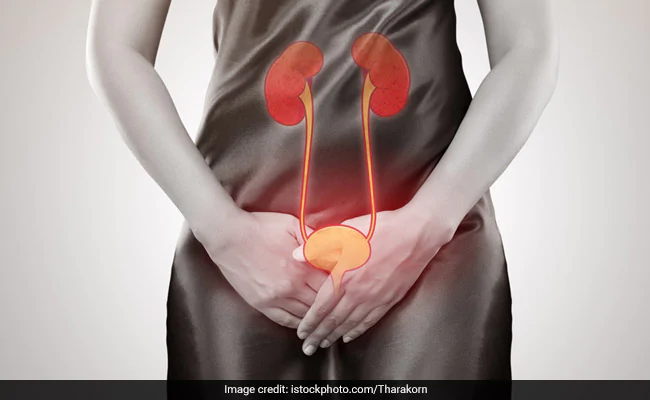- Our Doctors
- Our Specialities
Centres of Excellence
-
 Centre for Blood Diseases, BMT & Cancer Immunotherapy
Centre for Blood Diseases, BMT & Cancer Immunotherapy -
 Centre for Bone, Joint & Spine
Centre for Bone, Joint & Spine -
 Centre for Critical Care Medicine and ECMO Services
Centre for Critical Care Medicine and ECMO Services -
 Centre for Gastrosciences
Centre for Gastrosciences -
 Centre for Heart & Vascular Care
Centre for Heart & Vascular Care -
 Centre for Nephro-Urosciences
Centre for Nephro-Urosciences -
 Centre for Neurosciences
Centre for Neurosciences -
 Centre for Obstetrics and Gynaecology
Centre for Obstetrics and Gynaecology -
 Centre for Organ Transplantation
Centre for Organ Transplantation
Super Speciality
-
 Advanced Diagnostic and Interventional Radiology
Advanced Diagnostic and Interventional Radiology -
 Anesthesiology & Pain Management
Anesthesiology & Pain Management -
 Clinical Nutrition and Dietetics
Clinical Nutrition and Dietetics -
 Dental and Maxillofacial Surgery
Dental and Maxillofacial Surgery -
 Dermatology
Dermatology -
 Emergency and Trauma
Emergency and Trauma -
 Endocrinology and Metabolic Disease
Endocrinology and Metabolic Disease -
 ENT and Head & Neck Surgery
ENT and Head & Neck Surgery -
 Family Medicine
Family Medicine -
 General and Laparoscopic Surgery
General and Laparoscopic Surgery -
 General Medicine
General Medicine -
 GI Onco Surgery
GI Onco Surgery -
 GI Oncology
GI Oncology -
 GI Surgery, Advanced Laparoscopy and Gastro Oncosurgery
GI Surgery, Advanced Laparoscopy and Gastro Oncosurgery
-
- Key Procedures
- Our Hospitals
- International Patient
- Contact us
-
Quick Links
Blogs

Food as Medicine for Kidney Disease
Kidney disease is a term used when kidneys are unable to function normally, that is, kidneys are not able to filter waste and excess fluid from the blood. When your kidneys are damaged, waste products and fluid can build up in your body. That can cause swelling in your ankles, nausea, weakness, poor sleep, and shortness of breath. If not treated, the damage can get worse and your kidneys may eventually stop working and lead to a life-threatening condition.
Choose a Kidney-friendly Diet!
A kidney-friendly diet includes foods that do not cause toxins to build up and are easy to digest. The right balance of proteins, calories, vitamins, and minerals is essential so that there are no excess fluids and the kidneys don’t have to work that harder. Foods rich in antioxidants fight against free radicals and protect the body. Many of the foods that protect against oxidation are included in the kidney diet and make excellent choices for individuals with kidney disease or even for those on dialysis.
Balance Your Electrolytes
Electrolytes or minerals such as sodium, potassium, and calcium must be consumed in limit. Avoiding table salt and any high sodium seasonings, carbonated drinks is advised. Foods which are rich in calcium usually have high levels of phosphorus too. Limiting the intake of dairy, red meat and fruits like banana and avocado is advised. Intake of low-potassium foods such as cranberries, apples, plums, cucumber, celery, cauliflower, cabbage is recommended.
DASH Diet
The right food can work as medicine or become a cause for deterioration for end-stage renal failure patients. The DASH Diet is rich in fruits, vegetables, low-fat dairy products, whole grains, fish, poultry, beans, seeds, and nuts. It is low in salt and sodium, added sugars and sweets, fat and red meats. The DASH (Dietary Approaches to Stop Hypertension) Diet has been recommended by the National Kidney Foundation and approved by The National Heart, Lung and Blood Institute, and The American Heart Association. The DASH diet should not be used by people on dialysis. Individuals on dialysis have special dietary needs that should be discussed with a registered dietitian.
Latest Posts
-
 Awake Craniotomy Jul 12, 2022
Awake Craniotomy Jul 12, 2022 -
 Curing Constipation Jul 12, 2022
Curing Constipation Jul 12, 2022 -
 The ‘Gut Health’ Buzz Jul 12, 2022
The ‘Gut Health’ Buzz Jul 12, 2022 -
 Tips to Prevent UTI Jul 12, 2022
Tips to Prevent UTI Jul 12, 2022
Categories
- Clinical Nutrition and Dietetics
- Endocrinology and Metabolic Disease
- General and Laparoscopic Surgery
- General Medicine
- Physical Medicine and Rehabilitation
- Psychiatry
- Centre for Heart & Vascular Care
- Centre for Bone, Joint & Spine
- Centre for Neurosciences
- Centre for Gastrosciences
- Centre for Nephro-Urosciences
- Centre for Blood Diseases, BMT & Cancer Immunotherapy
- Centre for Obstetrics and Gynaecology

 +91 9393 108 108
+91 9393 108 108

















































